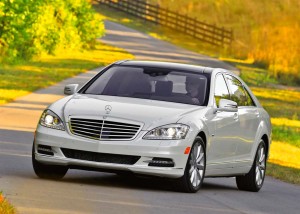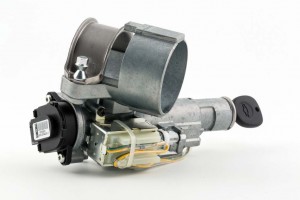German automaker Daimler AG is hiring an outside auditor to make sure it hasn’t cheated on emissions tests. Mitsubishi has set up an independent panel to see just how broadly it rigged its fuel economy numbers. Volkswagen has yet to release an internal report exploring the breadth of its own diesel scam.
In recent years, a veritable Who’s Who of automakers has been caught up in one scandal or another. They’ve been caught inflating mileage figures, deflating emissions numbers and, in a number of cases, covering up serious, often fatal safety problems. That includes General Motors which took a decade to order a recall for defective ignition switches now linked to at least 120 deaths.
In some cases, manufacturers have simply missed problems or failed to recognize their significance. In other instances, they have been willing to outright lie, said veteran auto analyst Joe Phillippi, of AutoTrends Consulting, considering such moves as “just the cost of doing business.”
But the recent flood of revelations may be changing the industry equation. “That doesn’t wash anymore,” said Phillippi, noting that regulators around the world have been cracking down on industry ethics violations with a new level of ferocity.

Mitsubishi has so far only acknowledged rigging mileage numbers on four Japanese vehicles, including two sold through Nissan.
Among the most recent scandals:
- Volkswagen admits to rigging 11 million diesel vehicles to illegally pass emission s tests;
- Mitsubishi acknowledges falsifying fuel economy data on at least four vehicles, and possibly others;
- Japanese supplier Takata played fast and loose with airbag problems that have led to the largest recall in history – 24 million vehicles in the U.S. alone;
- General Motors ignored a defective ignition switch for a decade, resulting in over 120 deaths.
Add Toyota’s mishandled unintended acceleration problems; Honda’s reporting of crash data; Hyundai, Kia and Ford’s inflated fuel economy scandals, and a number of other recent scams, scandals and other ethical lapses. Industry credibility has been stretched to the breaking point and is creating a growing backlash.
“The regulatory environment around the world is becoming more and more strict, particularly on things like greenhouse gases and fuel economy,” Ford CEO Mark Fields told reporters during a visit to China ahead of last week’s Beijing Auto Show.
(VW to spend $8.8 bil to repair or buy back rigged U.S. diesel vehicles. Click Here for the latest.)
In the U.S., Congress last December approved a tripling of the fines the National Highway Traffic Safety Administration can levy for violations of safety regulations. And the Justice Department has been stepping in with fines of its own in a number of recent cases.
That said, authorities are often overwhelmed when trying to stay on top of the auto industry. In the U.S. alone, there are more than three dozen different brands, and over 100 new products come to market each year, while scores of older models undergo sometimes significant updates.
Meanwhile, vehicles are becoming more and more complex, with highly sophisticated electronic control systems as well as their traditional, mechanical hardware. That was one reason Volkswagen was able to conceal for about seven years the use of a so-called “defeat device” on its 2.0-liter turbodiesel models. The software was sophisticated enough to recognize when a vehicle was undergoing emissions tests and then adjust engine operations to reduce the production of smog-causing oxides of nitrogen.
(For the latest on the Mitsubishi fuel economy scandal, Click Here.)
Part of the problem is that overwhelmed regulators often allow manufacturers to self-certify. Mitsubishi, for example, ran its own emissions tests and then provided the rigged results to authorities. Kia and Hyundai did the same thing, inflating the numbers for some models, such as the Kia Soul, by as much as 6 mpg.
Not all the scams are so sophisticated. When General Motors recalled 2.4 million vehicles equipped with faulty ignition switches two years ago, it admitted that mid-level managers had known about the problem for a decade but simply didn’t act. While they may have been hoping to save money, the eventual cost has been huge.
The maker has already paid a fine to the U.S. Justice Department, and more money through a victims’ compensation fund. It is now in the midst of trying to resolve hundreds of lawsuits related to the defect. The ultimate figure is expected to run into the billions of dollars.
Volkswagen, meanwhile, took an $18.2 billion hit to its 2015 earnings because of the diesel scandal, and it is estimating the cost of repairing or buying back 600,000 vehicles sold in the U.S. will come in at around $8 billion.
Such numbers may force manufacturers to think twice before playing fast and loose with their facts and figures. And making things all the more daunting, some of the country’s leading class action law firms have the auto industry in their sights. That includes Seattle-based Hagens Berman, which levelled multi-billion dollar lawsuits against both GM and VW – and which is now targeting Daimler AG, parent of Mercedes-Benz.
The firm has filed two lawsuits accusing the German maker of rigging its own diesel tests, law firm partner Steve Berman alleging Daimler’s “‘champion of the environment’ mantra was a sham.”
But there’s more than just the financial equation. Manufacturers also have to factor in “the risk of sullying your reputation with consumers,” said analyst Phillippi. Take Mitsubishi. Its Japanese market sales have plunged by half since the fuel economy scam was revealed, while its stock price also has fallen by roughly half.
Few observers expect the auto industry to entirely clean up its act. In some cases, manufacturers bend the rules inadvertently. In other situations, a low-level manager or engineer might simply be looking to solve a seemingly intractable problem. For others, the financial payoff of cutting corners may simple be too appealing.
(Daimler brings in outsiders to check for diesel cheats. For more, Click Here.)
But with increased scrutiny and heftier financial penalties, an automaker will have to weigh the costs and benefits more closely than ever.



